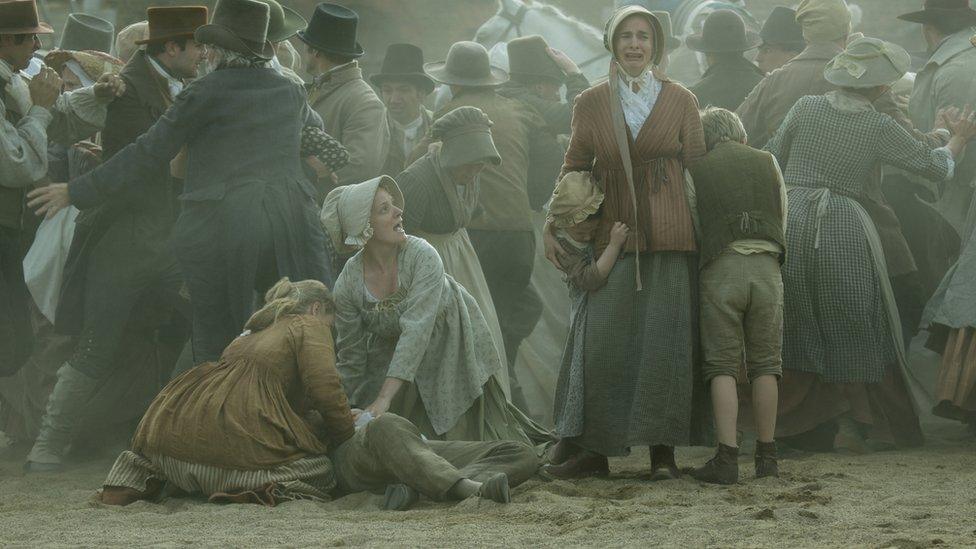Peterloo massacre: Cane carried by protester donated to museum
- Published
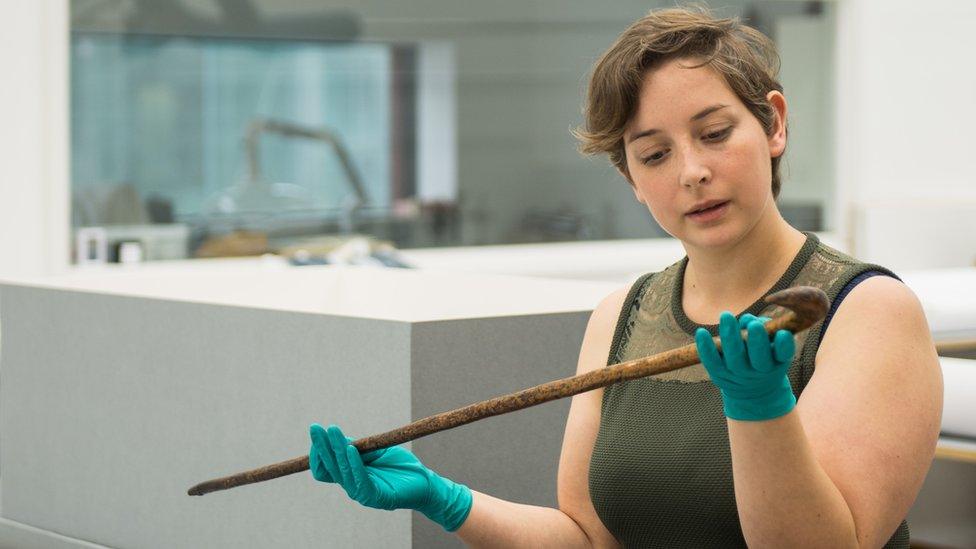
The cane has been passed down through seven generations
A rare cane carried by a man who was at the 1819 Peterloo massacre has been donated to a museum by his descendant.
The walking stick is inscribed with writing and drawings in memory of the atrocity.
Some 60,000 people gathered at St Peter's field in Manchester to stage a peaceful protest for reform and parliamentary representation, but 18 people were killed in ugly scenes.
In keeping with the fashion of the time, many protesters carried canes.
The mounted military suggested the sticks were being held as weapons and used them as a reason to charge the crowd.
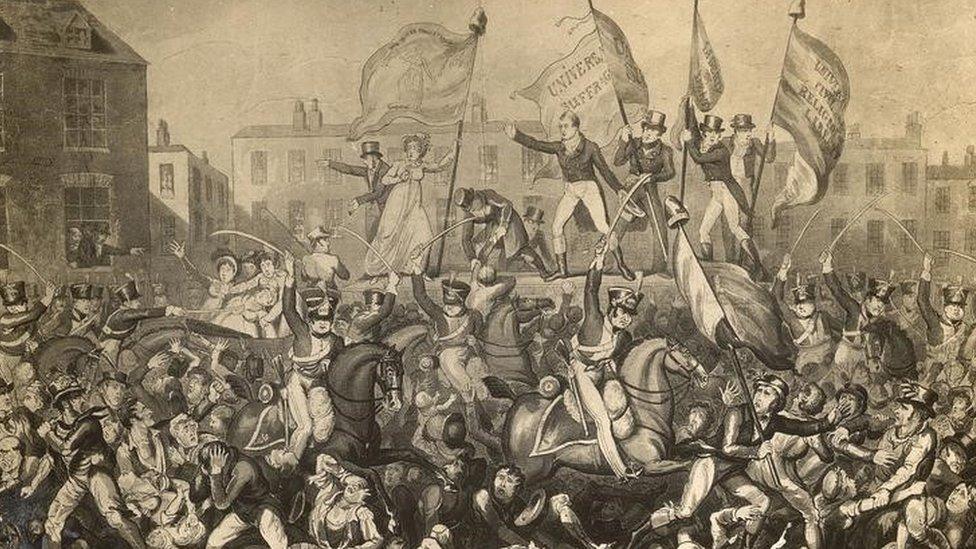
Violence flared when a troop of cavalrymen charged into a huge workers' protest
The cane originally belonged to Charles Worsley, who took it to the 16 August protest, which also left hundreds injured.
It has since passed through the generations to Mr Worsley's four times great-grandson, who donated the artefact to Manchester's People's History Museum.
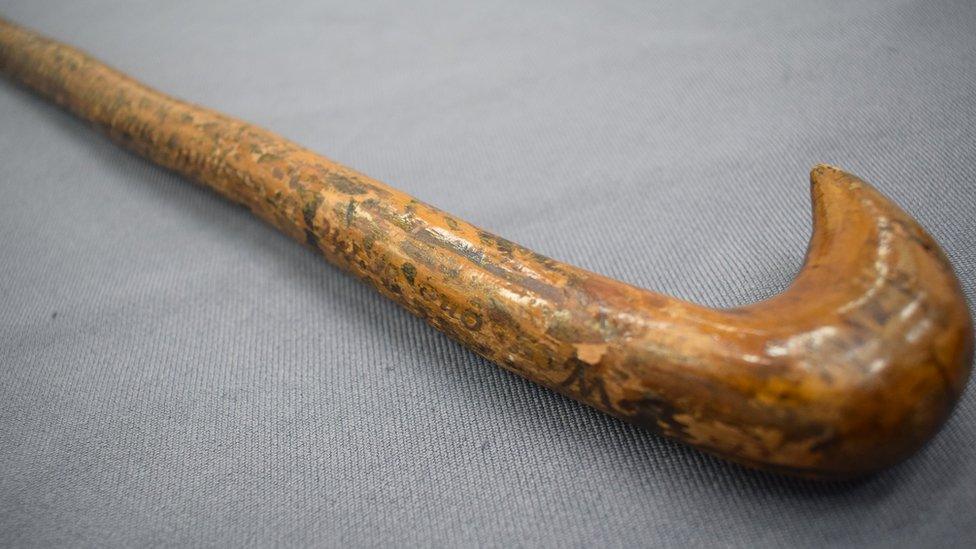
The cane is inscribed with words and images
It is inscribed with the words "I was one of the dreadful bludgeons seen on the plains of Peterloo".
Sam Jenkins, the museum's collections officer, said: "We believe the inscription to have been a satirical response to the exaggerated claims that the protestors carried weapons."
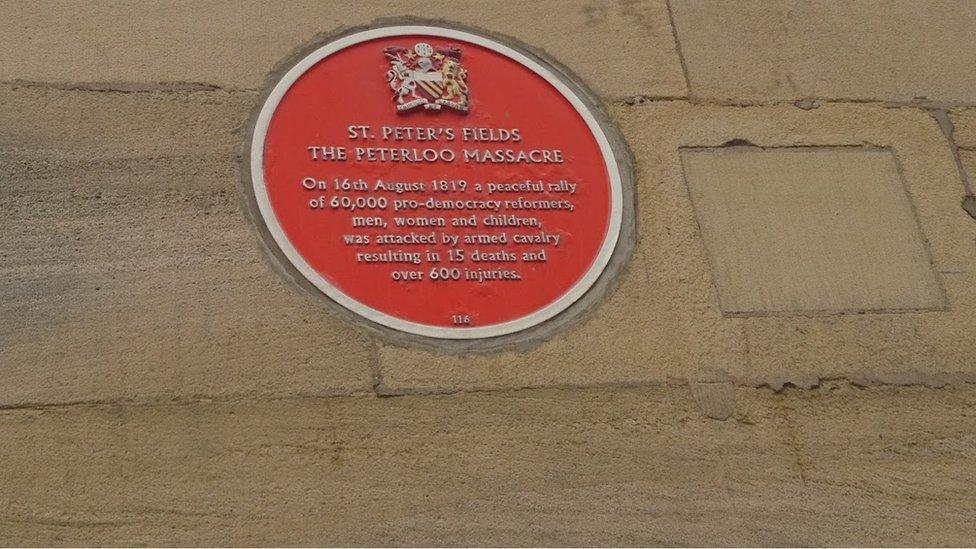
A plaque marks the location of the massacre in what is now St Peter's Square
Researcher Dr Shirin Hirsh said: "Despite the scale of the Peterloo massacre both in numbers and in impact, there are relatively few artefacts remaining.
"This is in part because this was a distinctly working class chapter of history, and in part because the clamp down by the authorities that followed meant that anything related to the event was often hidden or destroyed for fear of the repercussions.
"This is why the Peterloo cane is such a vital piece of history, as something that directly links to one of those who gathered 200 years ago to demand representation and rights of equality at a time when working people had none."
The cane will go on display from Friday 19 July.
- Published21 October 2018
